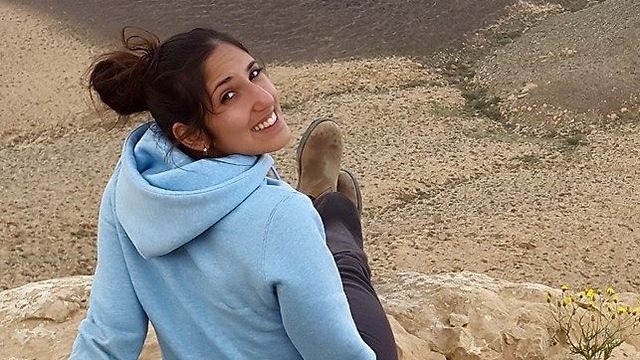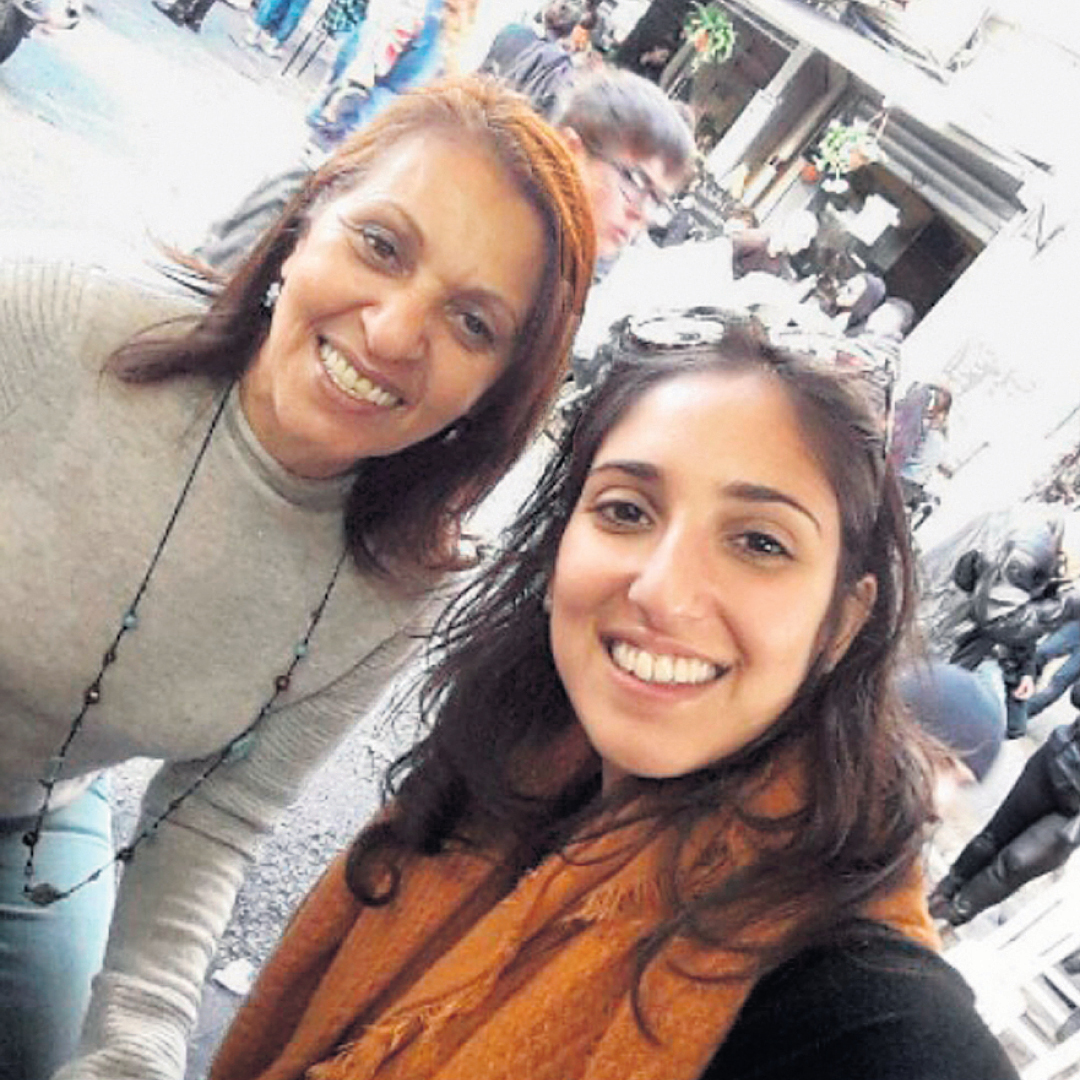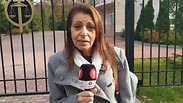

Mother of Israeli jailed in Russia on drug charges: She's a bargaining chip
In letter to her daughter Naama, Yaffa Issachar says they now understand why her charges for forgetting small amount of marijuana en route from India were suddenly increased; expresses hope that Rivlin's appeal to Putin for a pardon will be granted
MOSCOW - The mother of a young Israeli woman currently serving a seven-year jail sentence in Russia for drug smuggling arrived at the prison where she is being held Monday afternoon, six months after her arrest in transit at a Moscow airport with a small amount of marijuana in her possession.
Naama Issachar, 26, was arrested on April 9 while en route from India to Israel. Her family says she is being punished disproportionately to pressure Israel into freeing a Russian national held in Israel due to a U.S. extradition request. She is being used as a "bargaining chip," her mother said Monday as she arrived at the prison.
Yaffa Issacharof took with her a letter to her daughter, explaining why it had not been possible to secure her release and why she was serving such a harsh sentence.
"My Naama, when you walked into the courtroom in handcuffs, sat in a box with bars and surrounded by police officers preventing me from giving you my hand - those were my most difficult moments," Yaffa wrote.
"Every mother wants to protect her daughter, this is a fundamental quality for us. This ability was taken away from me brutally. Because you have become a bargaining chip.
"Naama, you can't imagine how hard it was for me to look you in the eye and see your panic. It's a torture that's hard to describe. Not being able to hold you tight and tell you to hold on a little bit longer. I will do everything to get you out of there; (you have) a country that cares about you," the letter said.
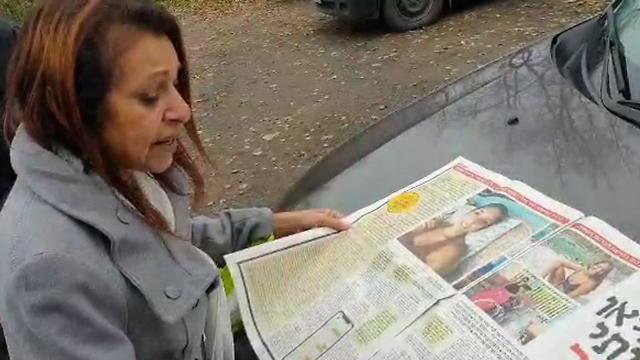
"Naama, everyone knew why you were suffering. Just you and I were the only ones who didn't know and didn't understand and didn't get answers," her mother wrote.
"We didn't understand why two weeks after deciding to charge you for personal use of the grass you forgot in your bag and fining you, they suddenly changed your charges to smuggling and dealing drugs.
"We didn't understand when they wanted to transfer you to a remote and isolated detention center. We didn't understand when the Russian judge repeatedly denied you transfer to house arrest with an electronic handcuff and guarantor letters from senior members of the (Russian) Jewish community.
"We didn't know and were extremely angry when they restricted your phone calls and letters, we didn't know why they refused to bring you kosher food, we didn't know what was behind the refusal to give you prayer books for Rosh Hashanah and Yom Kippur.
"We didn't understand why court hearings fateful for you were held precisely on Rosh Hashanah and Yom Kippur, the holiest day of the people of Israel, and you arrived for the hearing pale and exhausted by the fast.
"I'm sorry Naama, we didn't know why your defense team made allegations and put you on the witness stand, and at the same time the Russian judge was playing with his phone and disregarding (events).
"It seems we didn't know, and everyone else did. Now it's all clear. I promise you that I will fight your incarceration together with all your amazing friends in Israel and get you out of there soon."
The visit came after permission was granted by a Moscow court for Yaffa to see her daughter.
"I was given permission by a judge to visit my daughter in prison," Yaffa told Ynet after the visit was approved. "I must hurry so I am not (too) late," she said, adding that she wanted to take her daughter some food. Naama is being held at an facility that is more than an hour's drive from Moscow.
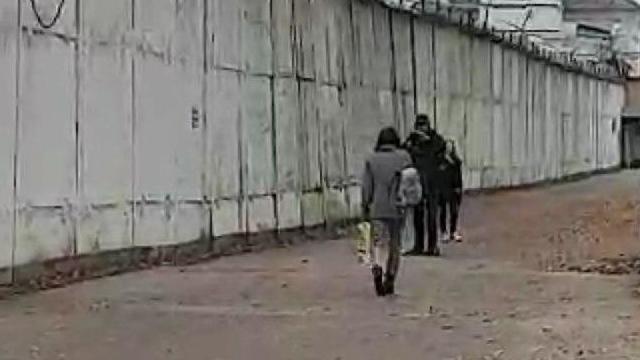
She said she was hopeful optimistic that her daughter would be released and expressed gratitude for the support the family had received across Israel.
"We have a wonderful country that must not be taken for granted," she said. "There has been so much support. The prime minister and justice minister both called me."
She said she was hoping to tell her daughter about the support and about the letter President Reuven Rivlin had sent to his Russian counterpart Vladimir Putin requesting her release.
""Because of the particular and individual circumstances of Naama Issachar’s case, I am appealing to your mercy and compassion with a request for your personal intervention to grant her an extraordinary pardon,” the president wrote in the letter.
Russia’s RT news channel suggested Issachar could be traded for Alexei Burkov, the Russian detained while visiting Israel in 2015. Israeli officials say the United States wants to extradite Burkov for suspected cybercrimes.
Naama's Russian attorney Alexander Tayts told Ynet that her prison sentence, which he called excessively severe, posed a precedence for anyone traveling through Russian airports, as his client had been in transit and did not officially enter Russia.
"Naama's difficulties are compounded by the fact she does not speak Russian," Tayts said.
"She does not belong in a Russian prison and we will keep fighting for her release."














